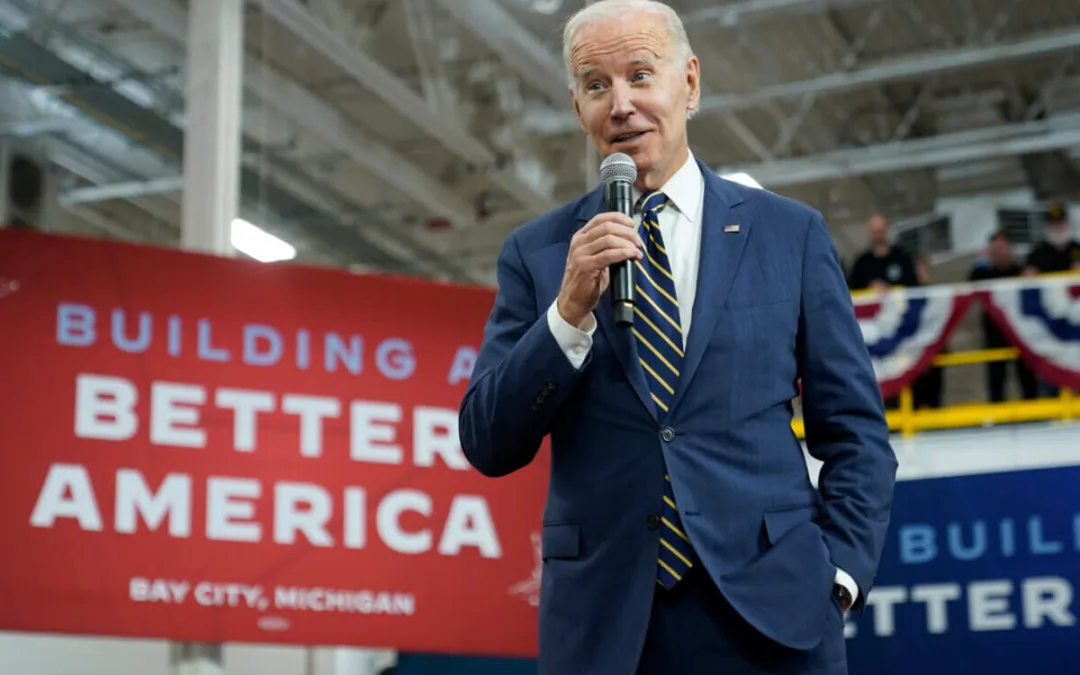
(AP Photo/Jacquelyn Martin)
The son of Salvadoran immigrants made history last night in more ways than one.
Update: Wednesday, Nov. 4. 9:30 a.m.
While the race hasn’t been called entirely, Ricky Hurtado is on path to make history. The 31-year-old Latino is close to winning the House District 63 and headed to represent Alamance County. Yes, he has flipped the seat so far. He’d be the first Latino to represent this rural community and the only Latino member of the NC legislature. He also made history by flipping the Republican seat to Democrats with more than 70% of the ballots.
The North Carolina State Board of Elections said “any eligible absentee ballots and provisional ballots to be counted” in North Carolina will not be counted until the board of elections meets next week either Nov. 12 or 14. That means that the total number of North Carolina voters will not be tallied until then. So far, 5.49 million people voted in North Carolina.
Having said that, Ricky Hurtado is still the projected winner.
“I am deeply humbled by tonight’s results,” Rep. Hurtado tweeted last night. “I look forward to representing the 63rd House District in Raleigh. Alamance County has spoken—it is time to chart a new path forward for our community.”
READ MORE: Ritchie Torres Will Be the First Openly Gay Boricua in Congress
Read more about his story below.
GRAHAM, NC—Ricky Hurtado had different plans for his summer. This was the summer he was going to prove that a 31-year-old son of Salvadoran immigrants could rouse his people to vote and make a difference. Even in North Carolina, even in Donald Trump‘s America.
The novel coronavirus upended the Democrat’s campaign for the state house in an exurban district. Hurtado stopped door-knocking. The closest he came to potential voters was standing 6 feet or more away while volunteering at food banks or a virus testing site. And still, he contracted the virus himself.
A Destabilizing Force
Across the US, the disease has disproportionately sickened Latinos, destabilized communities, and impeded voter registration ahead of the November presidential election. In North Carolina, only 5,000 Latinos have been added to the voter rolls since mid-March, less than half the number added during the same period four years ago.
The state has 1 million Latino residents, yet two-thirds are not eligible to vote because they are either under age 18 or not citizens. In Alamance County there are three Latinos who cannot vote for every one who can.
A New Latino Wave
Hurtado’s parents arrived in the United States in the trunk of a car, fleeing the civil war in El Salvador in 1980. Hurtado was born in Los Angeles, but when he was 7 his family moved to rural North Carolina, hoping the cleaner air would be better for his asthma.
He’ll never forget when a fellow seventh grader, a girl he considered a friend, called him “just another Mexican by the side of the road.”
READ MORE: Marco López Makes History as the First Hispanic Sheriff in Central Florida
“No somos ni de aquí, ni de allá,” is how he describes his feeling of alienation: “We’re from neither here nor there.” Hurtado was ready to take a job in California in 2014 when North Carolina’s governor at the time, Republican Pat McCrory, was pressing the federal government to deport the thousands of unaccompanied children who were crossing the border to flee violence in Central America.
“I just felt like, ‘That’s not the North Carolina I know,”’ Hurtado said.
He began running a program for first-generation students at his alma mater and plunged into the local activist scene, where he met Yazmin García. After they married, Hurtado and García settled in Alamance County in one of the commuter suburbs outside of Chapel Hill.
An Uphill Battle
The work of finding Latino voters—the 1 in 4—was always going to be difficult. Fear of immigration authorities is ever-present. Families members hold a patchwork of legal status. Doors don’t just open for anyone.
Yet Hurtado sees himself as a good match for Alamance, a representative of a modern, diversifying North Carolina.
Hit by the Pandemic
Then in mid-June Hurtado and his wife came down with the virus. They were shocked at the news; they rarely left their house, they said. Hurtado’s asthma had made them terrified of the disease. They recovered by early July.
While Republicans have revived some of their door-to-door canvassing, Democrats, including Hurtado, have largely refrained, arguing it’s too risky. Hurtado has turned to online meetings and fundraisers. Earlier this month he was one of dozens of candidates endorsed by former President Barack Obama.
RELATED: You Shouldn’t Panic if We Don’t Have A Winner on Election Night. It’s Normal and Totally Okay.
Hurtado has been heartened by the influx of calls from young people since the Black Lives Matter demonstrations began, which gives him hope Latinos will turn out despite all the obstacles in November.
But there’s another disappointment weighing down his household.
His wife was nearing the end of the years-long slog to become a U.S. citizen. She would joke about how she would be able to cast her first vote for her husband—if he earned it.
One of her final steps, an in-person interview, was postponed in March due to the pandemic.
García may not be able to vote for her husband after all.
The Associated Press contributed to this report.
Politics

Teamsters and UPS Reach Tentative Deal to Avoid Strike, 340,000 Workers to Get Raises
The tentative deal represents a huge win for full- and part-time UPS Teamster workers, who would get significant pay raises and better working...



One Republican Senator Is Blocking 265 Military Promotions, Leaving the Marines Without a Confirmed Leader
Sen. Tommy Tuberville's decision means these military officers are not getting the pay raises they’re owed, cannot move their families to wherever...
Local News



Teamsters and UPS Reach Tentative Deal to Avoid Strike, 340,000 Workers to Get Raises
The tentative deal represents a huge win for full- and part-time UPS Teamster workers, who would get significant pay raises and better working...



One Republican Senator Is Blocking 265 Military Promotions, Leaving the Marines Without a Confirmed Leader
Sen. Tommy Tuberville's decision means these military officers are not getting the pay raises they’re owed, cannot move their families to wherever...




